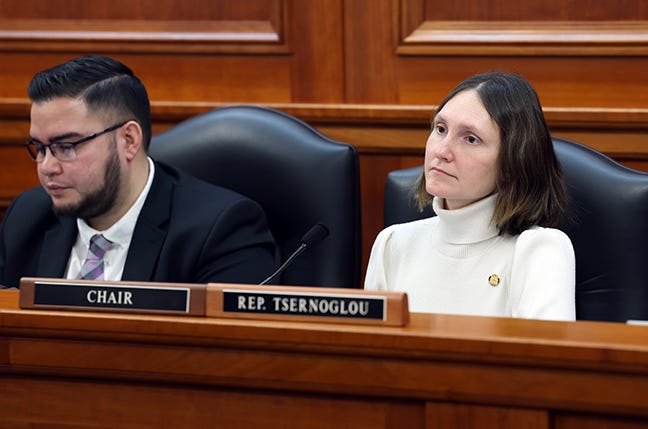
Lansing – A Democratic-controlled Michigan House committee advanced bills Tuesday that would help unions, which often back Democratic lawmakers’ campaigns, raise money for political contributions.
Democrats won control of both the House and Senate for the first time in 40 years in November. The new proposals, approved by the House Elections Committee on party-line votes, would eliminate the ban on government agencies from administering payroll deductions for political committees and generally allow automatic deductions to be set up to give to committees unions
The measures, bills of the Chamber 4230 i 4234became two of the first three campaign finance law changes to reach the full Michigan House of Representatives election committee this year amid a series of ongoing criminal investigations into corruption by officials previous Republicans, including two former House Speakers.
Last month, a coalition of groups called on lawmakers to strengthen state ethics laws.
The other campaign finance bill now awaiting a vote by the full House would allow candidates to use campaign funds to pay for child care expenses that “result directly” from the candidacy
House Elections Chair Penelope Tsernoglou, D-East Lansing, said the two union-backed proposals were among the first campaign finance bills voted out of her committee because they were among the only “ready for a hearing”.
Asked if the bills would help fundraise for Democratic candidates in the future, Tsernoglou said, “I think it will benefit unions and the issues they support and advocate for.”
“Traditionally, and right now, Democrats are more pro-worker than Republicans,” he added.
Democrats won a narrow majority in the House last year, with 56 of the 110 seats. All seats will be up for election again in 2024.
Eric Doster, a longtime campaign finance lawyer and former general counsel for the Michigan Republican Party, said the new bills would benefit unions at the expense of taxpayers.
“It tells people that this is special interest politics at its best,” Doster said of Democrats taking on the bills early in the 2023-2024 term. “Forget what’s good for taxpayers. Let’s look at what’s best for unions.”
Republicans previously argued that it was inappropriate for taxpayer-funded systems to be used to withhold public employee contributions to union political action committees (PACs).
But Rep. Jimmie Wilson, D-Ypsilanti, said his bill, which removes the ban on public agencies from administering payroll deduction plans for political contributions, was fair again when compared to the State campaign finance deals with private sector and public sector employees.
“This doesn’t force anyone to have to take payroll deductions for political contributions,” Wilson said Tuesday. “This is a voluntary thing.”
It’s unclear how much the payroll deductions will cost the state of Michigan, which has thousands of unionized workers represented by the American Federation of State, County and Municipal Employees, the United Auto Workers, the International Union of Service Employees and the Michigan Correctional Organization.
The nonpartisan House Fiscal Agency had none An analysis of the bill’s financial impact on state government ready for Tuesday’s hearing.
Union officials also argued that it was unfair that corporations can currently use automatic deduction systems to withhold paycheck contributions from their corporate PACs, but those same systems cannot be used to withhold contributions from union PACs.
Earl Cox of the Amalgamated Transit Union, which represents bus drivers and other transit workers, said the cost of using the deduction systems was “virtually nonexistent.”
“Our members who choose to contribute to the union’s political action efforts should be able to do so in the least onerous way,” Cox said.
At one point during the committee hearing, Rep. Jamie Churches, D-Wyandotte, asked Cox if he believed political contributions had the potential to influence how officials govern.
“No, I haven’t,” Cox replied.
Cox claimed that lawmakers receive contributions from groups that share their ideology.
Asked about Cox’s comments, Tsernoglou said people have to raise money to get elected, and if a lawmaker represents their district well, they will receive funds from groups or individuals and groups who agree.
“I would never vote a certain way because someone gave me a contribution,” said Tsernoglou, who is in his first term in the House. “But I think if I vote a certain way, there are certain people who are probably going to be more likely to make a contribution to me because they liked the way I voted, because they agree with my values.”
For the 2022 calendar year, six Michigan PACs linked to individual unions were among the 50 that raised the most money in the state, according to the disclosures. They were the Michigan Regional Council of Carpenters, the Service Employees International Union, the Michigan Labor Political League, two accounts linked to the American Federation of State, County and Municipal Employees and the Michigan Education Association .
Those six PACs raised between $450,000 and $1.5 million individually in 2022, according to their disclosures.
cmauger@detroitnews.com
[ad_2]
Source link





